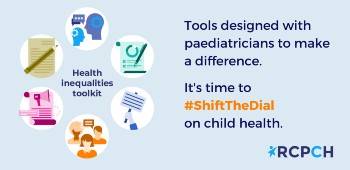
Inclusion health care
Social inclusion by definition is about making all groups of people feel included and valued within their society or community.
Causes of social exclusion
This can be as a result of a number of factors and often in combination:
- poverty and financial hardship
- homelessness; not having a permanent residence
- those who’s accommodation is insecure which includes all Gypsy, Roma and Traveller populations
- understanding the system; includes those who don’t speak English or with language barriers, those with learning disabilities and even mental health issues
- refugees asylum seekers and migrants to the UK will have a range of health needs and challenges in accessing the system, see below in the resources section, under migrant health care for specific guidance and information
- those in the criminal justice system; move around frequently and fall between services and face discrimination
- those who are unable to access services or prevented from accessing support as a result of abuse, domestic abuse or modern slavery or trafficking
- ill health physical or mental health can impact on a person’s ability to be included
- those who are marginalised and feel stigmatised due to their sexuality or gender or perceptions within social and cultural groups of diseases such as TB or HIV.
Inclusion health care and COVID-19
Improving the public’s health is about population health care, making sure that services are inclusive and responsive to all sectors of the population. It necessitates breaking down barriers for people to access health and social care.
Those who are most vulnerable either though poor housing, education or access to financial support often have the greatest needs in terms of health care. The evidence tells us that in general they won’t live as long and have much poorer health outcomes.
The reasons for people being excluded are numerous and often complex. It can be as a result of one of more of various factors, for example; unemployment; financial hardship; youth or old age; ill health (physical or mental); substance abuse or dependency including alcohol and drugs; discrimination on the grounds of sex, race, disability, ethnic origin, religion, belief, creed, sexual orientation or gender re-assignment; poor educational or skills attainment; relationship and family breakdown; poor housing (that is housing that does not meet basic habitable standards); crime (either as a victim of crime or as an offender rehabilitating into society).
The report from the Charity Commission, The promotion of social inclusion, sets out the various factors which contribute to people becoming excluded and mechanisms to support greater integration and inclusion.
The term ‘hidden populations’ is often used to describe groups of people who don’t seek out care. Although people themselves may sometimes wish to remain hidden, it is more often that people find it hard knowing where the services they need are or just getting to them or feel unwelcome when they try to access them. It is far too easy to rely on those who seek out health care or attend clinics, providing services for those who ask for it? Rather than searching for health needs and providing services for those who are harder to reach.
Equality and inclusion within health and social care is vital to ensuring people's differences are valued and that people are treated equally and supported to take part in whatever they wish to do but also that services support people in all areas to be able to look after themselves and prevent issues from becoming worse.
All Our Health: Financial wellbeing
This is a bite-sized session to give health and care professionals an overview of financial wellbeing - including key evidence, data and signposting to trusted resources to help prevent illness, protect health and promote wellbeing.

Health inequalities toolkit
Useful resources
RCN and non-RCN resources
Public Health England (PHE) Health Equity Assessment Tool (HEAT)
The Health Equity Assessment Tool (HEAT) helps support health care professionals embed equality and equity in service provision and help address health inequalities and improve health outcomes.
LGBT
- RCN. Caring for lesbian, gay, bisexual or trans clients or patients
- RCN. Fair Care for Trans and Non-binary People
Learning disabilities and mental health
- Dementia Action Alliance
- RCN subject guides on Mental Health Nursing and Learning Disability Nursing
- RCN Learning Disability Nursing Forum
Prisons and custody
- Prison Reform Trust
- RCN Nursing in Justice and Forensic Health Care Forum
- RCN subject guide on Nursing in Justice and Forensic Health.
Further resources
- Agenda. Agenda exists to ensure that women and girls at risk of abuse, poverty, poor mental health, addiction and homelessness get the support and protection they need. They campaign for systems and services to be transformed; to raise awareness across sectors; and to promote public and political understanding of the lives of women and girls facing multiple disadvantage.
- The Health Foundation. Health Equity in England: The Marmot Review 10 Years On. This report has been produced by the Institute of Health Equity and commissioned by the Health Foundation to mark 10 years on from the landmark study Fair Society, Healthy Lives (The Marmot Review).
- Making Every Adult Matter (MEAM). MEAM is a coalition of national charities – Clinks, Homeless Link, Mind and associate member Collective Voice. Working together they support local areas across the country to develop effective, coordinated services that directly improve the lives of people facing multiple disadvantage.
- VCSE Health and Wellbeing Alliance Inclusion Health Audit Tool. This online tool will help organisations to audit their engagement with Inclusion Health groups.
- Welsh Government. Strategic Equality Plan and Equality Objectives 2016–2020
- Welsh Government. Health of homeless and specific vulnerable groups
- Welsh Government. Standards for Improving the Health and Well-being of Homeless People and Specific Vulnerable Groups
- Public Health Wales. North Wales Public Health Priorities: Health Inequalities
- European Portal for Action on Health Inequalities
Page last updated - 13/06/2024





